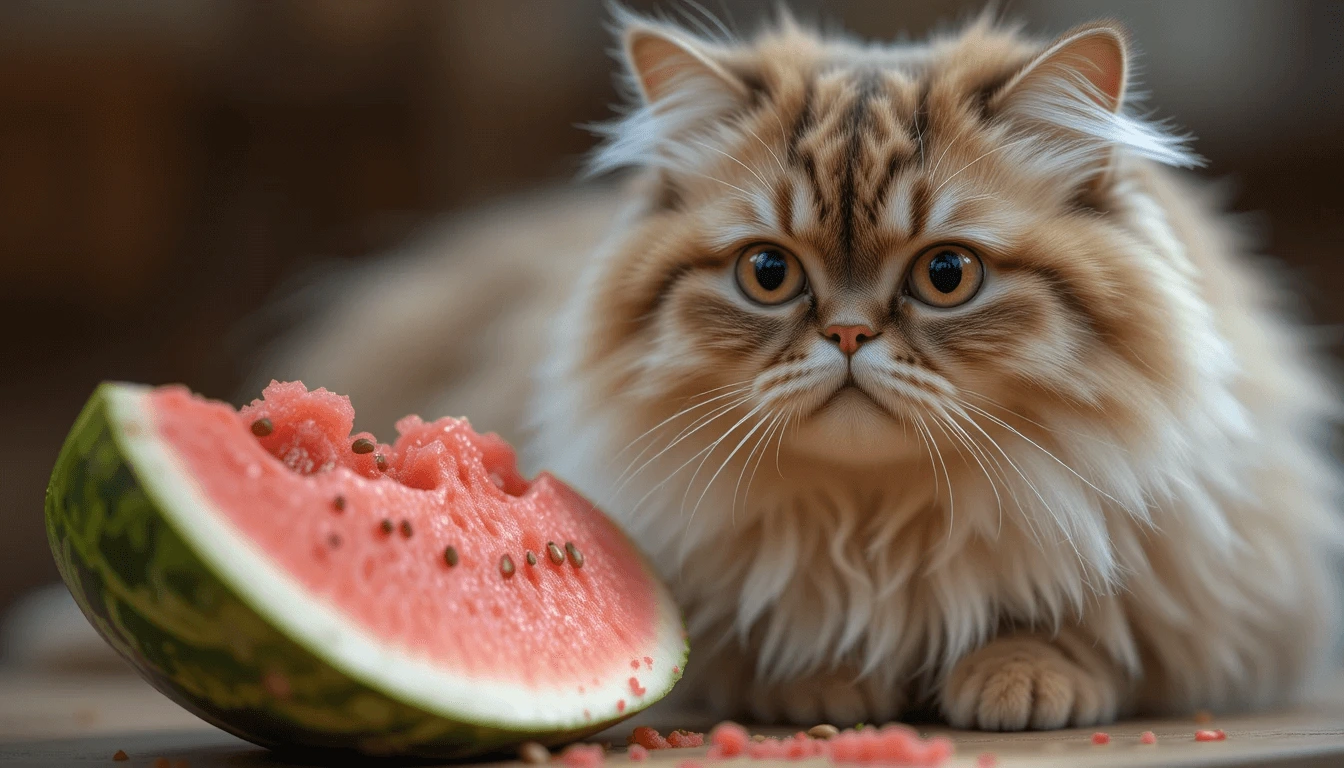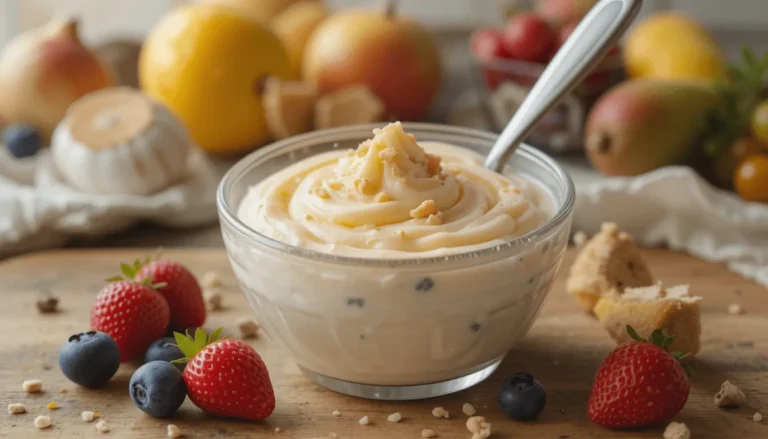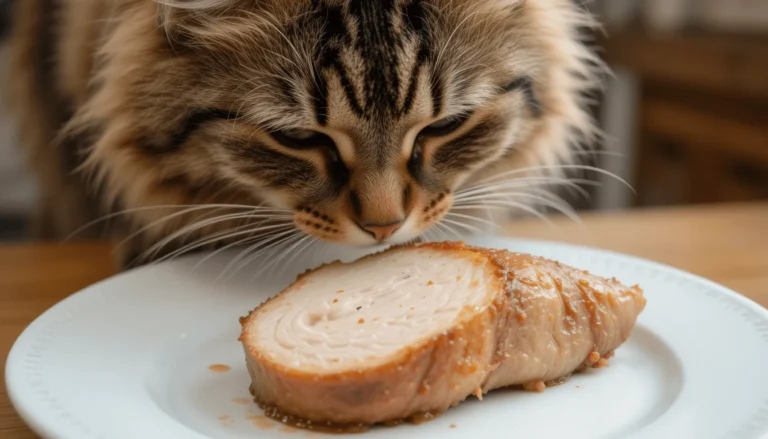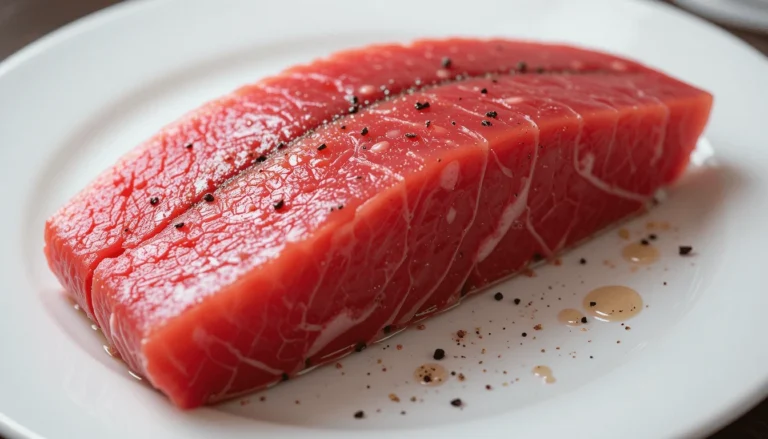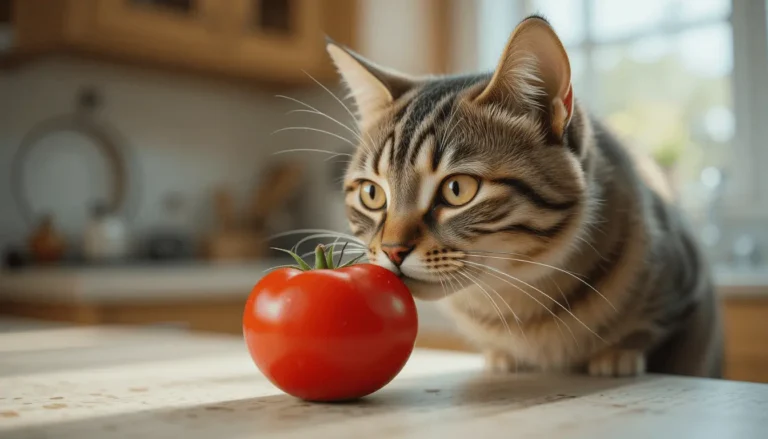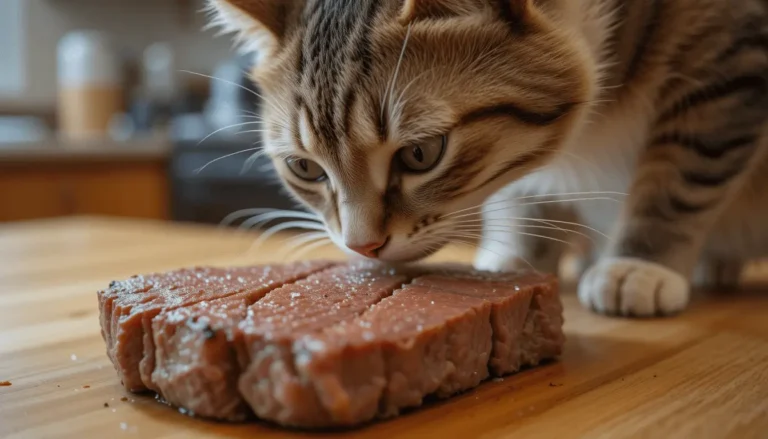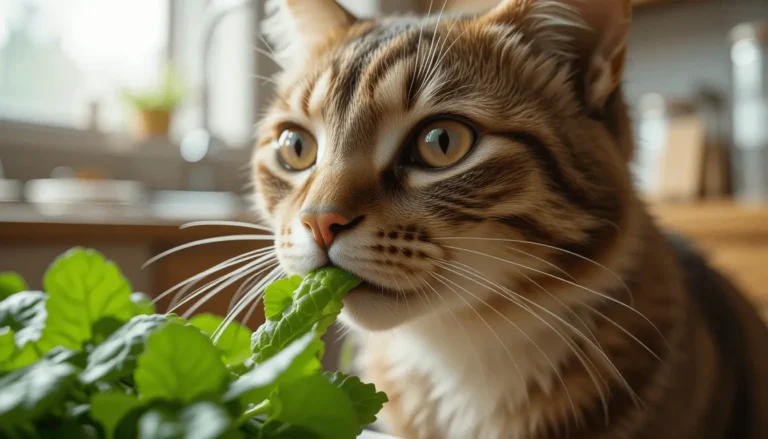Can Cats Eat Watermelon? Risks, Toxicity, and Safe Alternatives
Introduction
On a sweltering summer afternoon, my cat Luna curiously sniffed a slice of watermelon I’d dropped. Before I could react, she licked the juicy flesh—was that safe? As a doting pet parent, I dove into research to answer: Can Cats Eat Watermelon? I quickly discovered the answer wasn’t as straightforward as I’d assumed. While watermelon isn’t toxic, there are hidden risks (like seeds and rinds) and better alternatives to keep your feline cool and healthy. Let’s explore!
Is Watermelon Safe for Cats? Understanding the Basics
The Nutritional Breakdown: What Watermelon Offers (and What It Doesn’t)
With its 92% water content, watermelon acts like nature’s sports drink – an appealing hydration boost that could theoretically help cats, since many felines stubbornly avoid drinking enough water from their bowls. But let’s examine the complete nutritional picture:
Key Nutrients in Watermelon:
- Vitamin A is vital for three key functions: sustaining vision health, strengthening immune responses, and maintaining skin barrier function.
- Vitamin C: An antioxidant that cats can produce naturally
- Lycopene: A carotenoid antioxidant that serves as watermelon’s natural red pigment while offering potential health benefits
- Potassium: Important for nerve and muscle function
However, there are important caveats:
- Feline biology confirms cats as obligate carnivores—their short digestive tracts, acidic stomachs, and metabolic pathways evolved specifically to derive nutrition from animal tissue rather than plant matter
- They lack taste receptors for sweetness, so they don’t experience watermelon the same way we do
- Their short digestive tracts aren’t optimized for processing plant matter efficiently
Potential Risks and Precautions
While the flesh of watermelon isn’t toxic to cats, several components pose potential dangers:
1. Seeds:
- Choking hazard, especially for smaller cats
- Can cause intestinal blockages if swallowed
- May lead to emergency veterinary visits
2. Rind:
- Tough, fibrous texture is difficult to digest
- May cause gastrointestinal upset (vomiting or diarrhea)
- Potential pesticide exposure if not thoroughly washed
3. Sugar Content:
- Natural sugars, while not immediately harmful, can contribute to:
- Weight gain
- Dental issues
- Increased diabetes risk over time
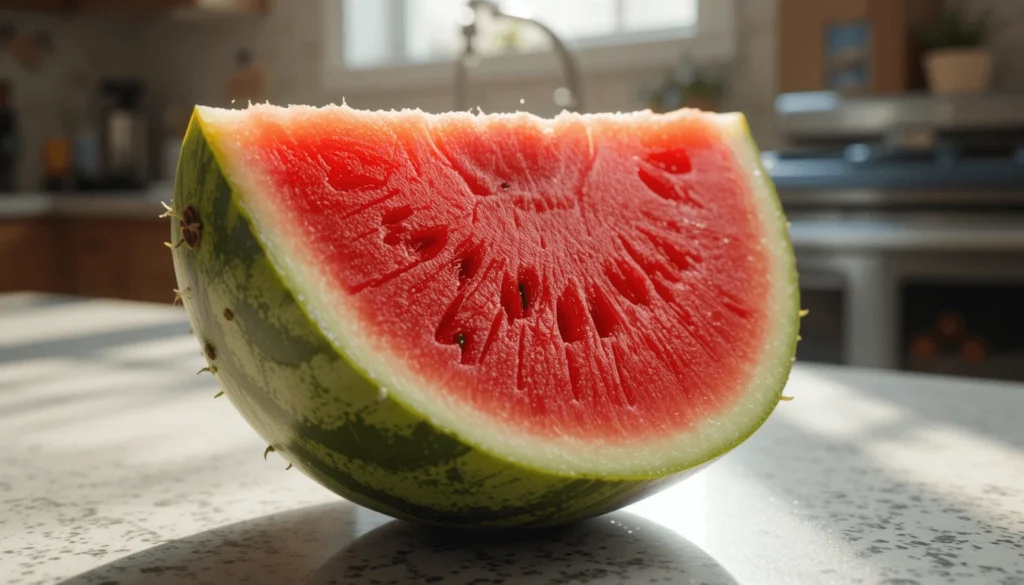
Veterinary Perspectives: What the Experts Say
According to Dr. Sarah Wooten, DVM and veterinary expert, “While watermelon isn’t toxic to cats, it should only be given in very small amounts as an occasional treat.” The general consensus among veterinarians includes these guidelines:
- Portion Size: No more than 1-2 teaspoon-sized pieces occasionally
- Preparation: Must be seedless, rind-free, and cut into bite-sized pieces
- Frequency: Not more than once or twice a week
The American Society for the Prevention of Cruelty to Animals (ASPCA) confirms that watermelon isn’t on their list of toxic plants for cats, but emphasizes the importance of proper preparation.
Potential Dangers of Feeding Watermelon to Cats – Beyond the Basics
Digging Deeper: Understanding the Real Risks
While watermelon flesh itself isn’t poisonous to cats, several factors make it less than ideal as a regular treat:
Digestive System Differences:
Cats have:
- Shorter digestive tracts than humans
- Different gut bacteria profiles
- Limited ability to break down plant matter
These physiological differences mean that even “safe” human foods can cause:
- Stomach upset
- Diarrhea
- Decreased appetite for their regular food
Allergic Reactions and Sensitivities
While rare, watermelon can trigger food sensitivities in certain cats, manifesting as gastrointestinal or dermatological reactions. Watch for:
- Skin irritations (excessive scratching)
- Gastrointestinal distress
- Lethargy or behavioral changes
If you notice any of these symptoms after feeding watermelon, discontinue immediately and consult your veterinarian.
The Seed Controversy: Separating Fact from Fiction
There’s considerable confusion about watermelon seeds. Let’s clarify:
Common Myths:
- “Watermelon seeds contain cyanide like apple seeds” (False – they don’t)
- “Seeds will grow in a cat’s stomach” (False – urban legend)
Actual Risks:
- Physical obstruction in digestive tract
- Choking hazard
- Potential to cause intestinal irritation
For absolute safety, always:
- Choose seedless varieties when possible
- Double-check for stray seeds
- Remove all seeds before offering to your cat
Healthy & Safe Alternatives to Watermelon – Better Options for Your Feline Friend
Cat-Friendly Fruits: Safer Choices
If your cat shows interest in fruits, these options are generally safer than watermelon:
1. Blueberries:
- Packed with antioxidants
- Small size reduces choking risk
- Can be served mashed or whole
2. Cantaloupe (seedless and rind-free):
- Contains beta-carotene
- Sweet aroma often appeals to cats
- Should be given in tiny amounts
3. Steamed Pumpkin (plain, no spices):
- Excellent for digestive health
- Can help with both constipation and diarrhea
- Only serve plain, cooked pumpkin
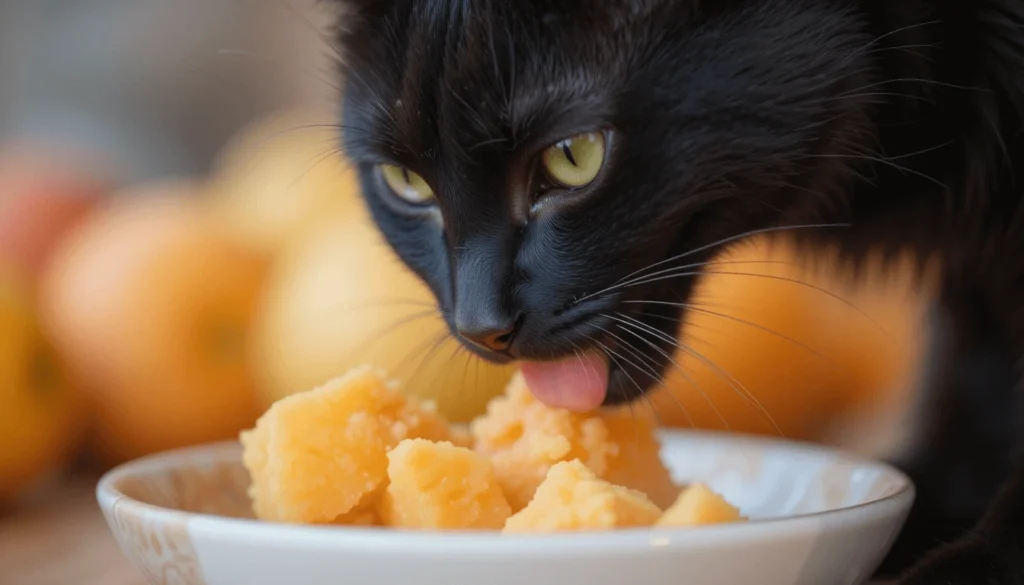
Hydration Solutions: Better Than Watermelon
Since the water content is often what attracts owners to feed watermelon, consider these superior hydration options:
1. Wet Food Diet:
- Naturally contains 70-80% moisture
- Provides complete, balanced nutrition
- More appealing to cats than plain water
2. Bone Broth (homemade and unsalted):
- Rich in nutrients
- Highly palatable
- Can be frozen into cubes for summer treats
3. Water Fountains:
- Many cats prefer running water
- Encourages increased water intake
- Available in multiple styles to match your cat’s drinking habits and your home décor.
DIY Cat Treats: Fun and Safe Recipes
For pet owners who enjoy making homemade treats, try these simple recipes:
Frozen Tuna Bites:
- Mix canned tuna (in water) with a bit of plain yogurt
- Pour into ice cube trays
- Freeze and offer as occasional cool treats
Salmon Smoothie Cubes:
- Blend cooked salmon with water
- Freeze in small portions
- Serve as a special snack
Important Note: Always introduce new foods gradually and monitor your cat’s reaction.
Conclusion
After exploring the risks, benefits, and alternatives, we can conclude that cats can eat watermelon in very small, carefully prepared portions—but it’s not necessary for their diet. While the hydrating flesh isn’t toxic, the seeds, rind, and sugar content pose real risks. Instead of sharing your summer snack, consider safer, more nutritious alternatives like seedless cantaloupe, steamed pumpkin, or high-quality wet food to keep your feline friend happy and healthy.
Before offering any human food, ask yourself:
- Is this safe in tiny amounts?
- Have I removed all hazards (seeds, rind, additives)?
- Is my cat showing any adverse reactions?
For further reading on feline nutrition, consult these authoritative resources:
- Safe Or Not ? Cat Food Guide
- ASPCA’s Guide to People Foods for Pets
- Cornell Feline Health Center’s Nutrition Advice
- VCA Hospitals’ Article on Cat Diets
FAQs: Your Top Questions Answered
Can watermelon kill cats?
No, watermelon flesh is not toxic, but seeds or rind can cause life-threatening blockages. Always serve seedless, rind-free pieces in tiny amounts.
How much watermelon is safe for cats?
A teaspoon-sized piece once or twice a week is the maximum. Cats don’t need fruit in their diet, so moderation is key.
Why does my cat like watermelon if they can’t taste sweetness?
Cats may be attracted to the juicy texture or smell, not the taste. Some enjoy the crunch, while others simply mimic their owner’s interest.
Are there any cats who should never eat watermelon?
Yes! Avoid giving watermelon to:
- Diabetic cats (due to sugar content)
- Kittens (higher choking risk)
- Cats with sensitive stomachs
What should I do if my cat eats watermelon rind or seeds?
Monitor for vomiting, lethargy, or loss of appetite. If symptoms appear within 24 hours, contact your vet immediately.

